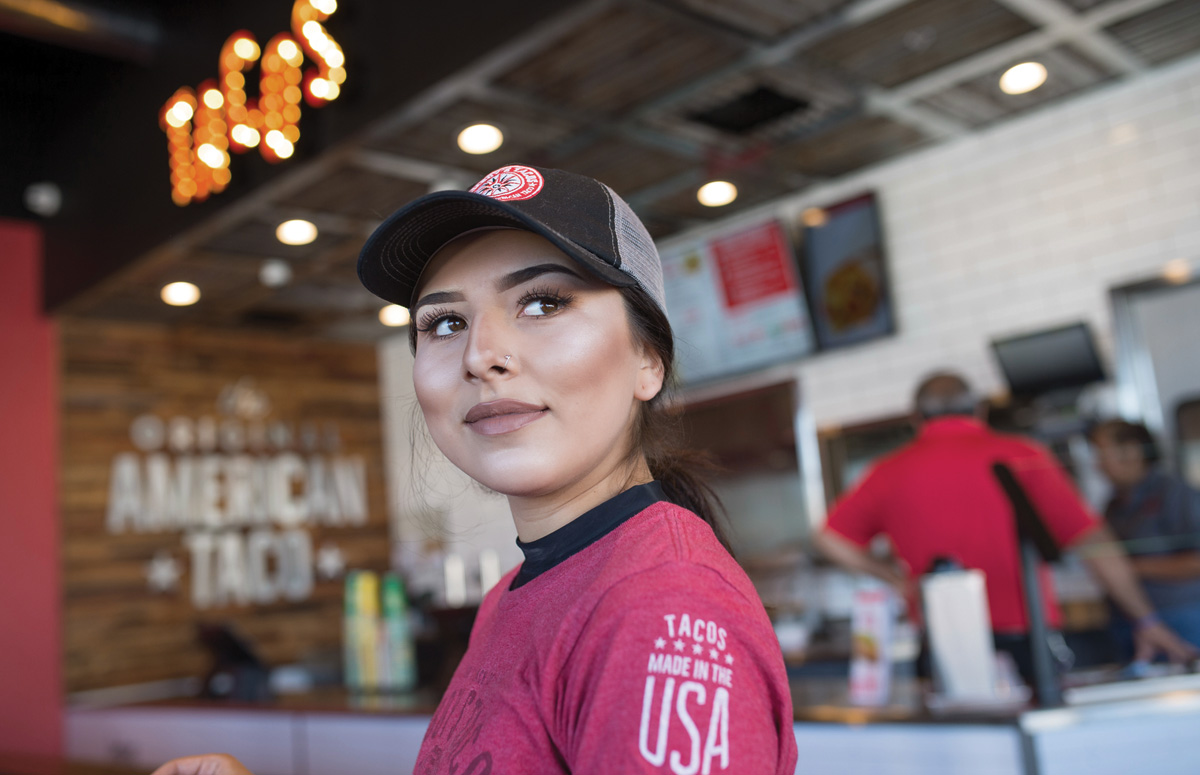When it comes to hot-button issues in the restaurant industry, the question of minimum wage may be the most contested. Some operators have become champions of the cause, citing it not only as a business responsibility, but also as an opportunity to build a stronger company from the ground up. Others argue that higher wages compound already razor-thin operating margins—or force restaurants to pass the extra cost onto consumers.
According to Fortune magazine, 20 U.S. cities and 18 states raised the minimum wage on January 1. While few surpassed $1 increases, such raises are expected to continue with 17 percent of Americans living in a city or state where the minimum wage is $15 by 2022, per Fortune.
Looking to the future, three limited-service leaders weigh in on how restaurants can adapt to the changes.
Robert Anderson / CEO, Jimboy’s Tacos
Labor represented the greatest challenge for restaurant operators long before the changes in minimum wage laws. It’s our view at Jimboy’s Tacos that operators who focus solely on the hourly rate they pay will find it very difficult to compete in today’s environment.
We anticipate the labor market to become more competitive and drive wages upward. Therefore, we have an intensely aggressive focus on building value in our customer experience at Jimboy’s restaurants. Inherently, we can have more impact on building value in the customer experience than in trying to control wages in the marketplace. As we see inflation in labor and food cost, Jimboy’s can still enjoy great success growing sales by delivering an experience that our guests value and will pay for. Increased sales and productivity are the great equalizer to increased labor costs.
Jimboy’s and other restaurant operators who thrive today are already paying their team members fair wages. The marketplace is fairly efficient, and good operators will offset the increase in labor cost with increased sales, price increases, efficiency, and productivity. They will continue to invest in finding, hiring, and developing the right people. Higher minimum wages will have a negative impact on operators who cannot attract and train team members to provide a customer experience that guests value and will pay for.
Peter Riggs / CEO & President, Pita Pit
Right now, there are so many areas where the minimum wage is rising so quickly that business owners have no recourse other than to raise prices in concert with the wage increases. Aggressively accelerated minimum wages are just creating an artificial form of inflation. As the minimum wage increases, businesses are required to re-evaluate their pricing structures, and most businesses realize the only way they can afford to pay for the increasing labor costs is to raise their prices.
Another significant issue is the fact that whether it’s Pita Pit or another [quick serve], oftentimes we are the first job for a lot of people, and at a $15/hour minimum wage, restaurants need to look for employees that have the skills to offset that labor cost, which will likely preclude the hiring of people with no established work history.
I was just speaking to one of my franchisees, and they were lamenting the fact that franchises in their area are treated differently than a mom-and-pop establishment. They are required to pay a higher minimum wage than other sandwich shops just because they’re part of a franchise. Too many people don’t understand that Pita Pit franchises are owned and operated by folks that live in and give back to their local communities.
Michael Lastoria / Cofounder & CEO, &pizza
Industries have patterns. They have norms and standard-bearers. As a newcomer, &pizza was looking at the industry with untrained eyes. That meant we could break the rules without even knowing we were going against the grain. We broke the rules with fair wages and now find ourselves out in front.
&pizza is built on the shoulders of its employees. We give them a say. We believe in their advancement. But all of that counts for nothing if they can’t live on the wages we pay them. The minimum wage raise is the single clearest way to say to our employees, “We value you.”
The only way to be successful is to stand for something that is new and different and then execute on that vision. We want our ampersand to stand for something more: a lifestyle, a culture, a belief system. And we work hard to stay true to that mandate. It connects fair wages and financial health. They do not have to be at odds.
It’s important that fair pay will not only stay at &pizza, but also continue to spread all across the country. It’s a simple but critical concept: Allow your staff to thrive, and your company will thrive.













